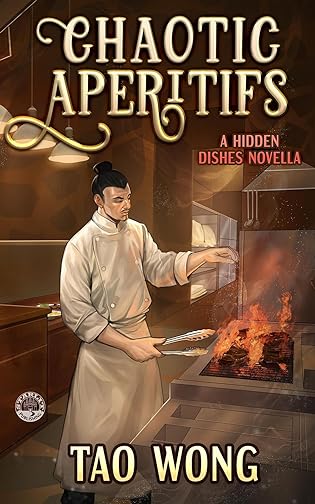 Chaotic Apéritifs: A Cozy Cooking Fantasy (Hidden Dishes Book 2) by Tao Wong
Chaotic Apéritifs: A Cozy Cooking Fantasy (Hidden Dishes Book 2) by Tao Wong Format: eARC
Source: supplied by publisher via NetGalley
Formats available: ebook, audiobook
Genres: cozy fantasy, fantasy, foodie fiction, urban fantasy
Series: Hidden Dishes #2
Pages: 124
Published by Starlit Publishing on May 1, 2024
Purchasing Info: Author's Website, Publisher's Website, Amazon, Barnes & Noble, Kobo, Bookshop.org
Goodreads
The Only Constant with Magic is Change.
Mo Meng is reminded of that fact once again, as the Nameless Restaurant faces a new challenge. Magic and its old wielders are returning to the world. For the restaurant, wards of anonymity and camouflage are fading, leading to the arrival of new customers. And some older friends.
What started as a way to pass the decades and feed a few customers has become actual work.
The world is changing, and to face it, the Nameless Restaurant, along with its proprietor and patrons, will need to embrace the change with a good meal and new friends.
Chaotic Apéritifs is book 2 in the Hidden Dishes series, a cozy cooking fantasy perfect for fans of Travis Baldree's Legends & Lattes and Junpei Inuzuka's Restaurant to Another World. Written by bestselling author Tao Wong, his other series include the System Apocalypse, A Thousand Li, Hidden Wishes and Adventures on Brad series.
My Review:
Welcome to another day in the life of Mo Meng’s nameless restaurant, following the first delicious book in the Hidden Dishes series, titled, of course, The Nameless Restaurant!
The dishes served here truly are magically delicious, because the chef, Mo Meng, is a mage. Not that he actually uses magic in his cooking, because that would be cheating. Instead, he’s been using magical wards and sigils to make his hole-in-the-wall restaurant in Toronto look unappealing to the average restaurant goer, tourist and especially mundane government bureaucrat.
Because he absolutely IS using magic to keep pests at bay – no matter how many legs they have.
The problem that Mo Meng faces in this story is a direct result of the events in the first book featuring his nameless restaurant. Because in that story, Mo Meng’s out-of-the-way establishment hosted a newly awakened utter nuisance of a jinn, and she’s been waking up all kinds of magic and all sorts of other magic users as she navigates the 21st century.
That influx of her chaotic magic is wearing down Mo Meng’s wards. The sheer, overwhelming ubiquity of the internet isn’t helping either. It’s everywhere, no spell of forgetting or obfuscation affects it, and too many people are discovering, remembering, and talking about his restaurant on it.
He and his front-of-house manager Kelly are so swamped with customers that something is going to have to change – because it already has. The question is whether Mo Meng will embrace that change – or leave it and the community he’s built behind while he retreats. Again.
As he observes one very singular customer get confronted with all the changes that have occurred over the centuries while he slept and does his damndest to bluff his way into the future without setting the restaurant on fire with his magic, Mo Meng figures out his own answers.
 Escape Rating A-: I’m doing this review a week early so that you have a chance to read the tasty first book in the Hidden Dishes series, The Nameless Restaurant, before you gobble this second book up in one delicious bite.
Escape Rating A-: I’m doing this review a week early so that you have a chance to read the tasty first book in the Hidden Dishes series, The Nameless Restaurant, before you gobble this second book up in one delicious bite.
Because they are both absolutely magically delicious, to the point where I need to put a kind of a trigger warning on both books. Do NOT read while hungry. It’s very dangerous. Trust me on this. Mo Meng’s entire cooking process and every single dish is described in mouth-watering detail as he cooks and it’s impossible to resist – even if the dish itself isn’t one you actually think you’ll like.
The tone of this second book is not quite as lighthearted as the first book, in spite of it being underpinned by the advent of two agents from the Department of Supernatural Entities. Mika and Ophelia are there to investigate the weakening of Mo Meng’s wards and just generally behave like government bureaucrats – up to and including the tension between the two of them, as senior agent Mika knows just where the lines are drawn, while his junior wants to leap over all the rules, regulations, and common sense to right what she defines as wrong in spite of all of the above.
The atmosphere in the restaurant is tense all the way around. Kelly begins her day being berated by her mother over the phone, Mo Meng is behind because there is way more business than one chef – even a magical one – can handle, and the patrons and would-be patrons start out agitated because a) Mo Meng IS running behind schedule and b) the restaurant is tiny, the wait is long, and the line out the door and around the block is enough to outrage anyone.
That a new predator who absolutely radiates power sits in the midst of all, offending many while trying to obfuscate his way through his lack of recent knowledge just adds to everyone’s stress – including his own as he’s trying to figure out why the jinn woke him up and sent him to this place. (I’m truly chagrined at how long it took me to figure out who he was. All the clues were there, I just wasn’t seeing them. (Consider a picture of me facepalming inserted here)
All the same, I loved every mouth-watering page of this story – at least once I sat down with my own dinner to accompany it. (There’s a regular at this restaurant who also reads through his meal, so I’d fit right in!)
Even though the situation is a bit tense, the story and the setting still fit delightfully into the new cozy fantasy vibe, on the shelf between Legends & Lattes and The Kamogawa Food Detectives. At the same time, it’s doing what urban fantasy has always done, it’s getting just a bit deeper and darker as it goes – and it’s fascinating and makes me want more.
It’s clear from the way that this entry in the series ends that even though Mo Meng and Kelly have found a way through their immediate problems, trouble is brewing on the horizon right alongside Mo Meng’s pineapple vinegar. So I’m going to get that more I wanted in the next book in the series, titled Sorcerous Plates. My mouth and my brain are already craving the next bite!

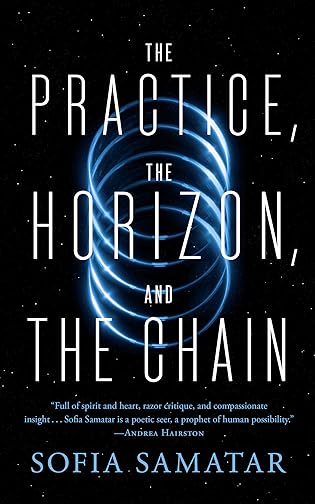 The Practice, the Horizon, and the Chain by
The Practice, the Horizon, and the Chain by  Not that academia doesn’t do plenty of caste stratification of its very own, and not that it can’t be both blood thirsty and bloody minded – particularly in its small-minded, impractical politics. If an exploration of that appeals and you enjoy SF mysteries, Malka Older’s Mossa and Plieti series,
Not that academia doesn’t do plenty of caste stratification of its very own, and not that it can’t be both blood thirsty and bloody minded – particularly in its small-minded, impractical politics. If an exploration of that appeals and you enjoy SF mysteries, Malka Older’s Mossa and Plieti series,  The House on Widows Hill (Ishmael Jones #9) by
The House on Widows Hill (Ishmael Jones #9) by 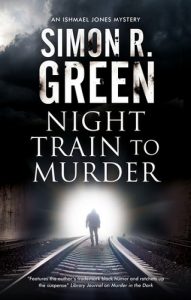 The House on Widows Hill is more of a twist on the typical English country house mystery than even Ishmael Jones and his partner Penny Belcourt usually have to contend with.
The House on Widows Hill is more of a twist on the typical English country house mystery than even Ishmael Jones and his partner Penny Belcourt usually have to contend with.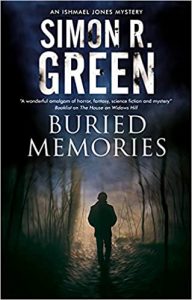 Someone in the ‘Organization’ is considering buying the place – or that’s what Ishmael and Penny are told, anyway. That night is a ‘one-night-only’ invitation to not just Ishmael and Penny as representatives of the potential buyer, but also to a whole team of “ghost botherers” (as Ishmael calls them) who have been begging – for years it seems – to get inside the old haunt. Along with one intrepid reporter who represents the family that owns the creepy pile – and really would like to get shed of the place once and for all.
Someone in the ‘Organization’ is considering buying the place – or that’s what Ishmael and Penny are told, anyway. That night is a ‘one-night-only’ invitation to not just Ishmael and Penny as representatives of the potential buyer, but also to a whole team of “ghost botherers” (as Ishmael calls them) who have been begging – for years it seems – to get inside the old haunt. Along with one intrepid reporter who represents the family that owns the creepy pile – and really would like to get shed of the place once and for all.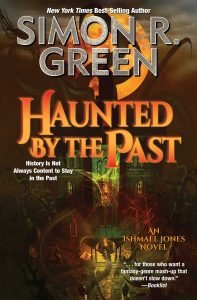 Escape Rating A-: I normally save this series for around Halloween, but I’m in the midst of a reading quandary that I hoped this book would solve – or at least beat back for a couple of days. I’m in the middle of listening to Erik Larson’s
Escape Rating A-: I normally save this series for around Halloween, but I’m in the midst of a reading quandary that I hoped this book would solve – or at least beat back for a couple of days. I’m in the middle of listening to Erik Larson’s 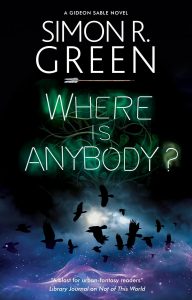 The House on Widows Hill very much has the classic haunted house vibe going on – even though with Ishmael and Penny involved the reader begins the story aware that it just isn’t going to go to any of the places that haunted houses normally go. That Ishmael gets shaken out of some of his internal certainties and securities added a bit to the ongoing arc of the series while at the same time ramping up the tension of both this book and the books in the series yet to come.
The House on Widows Hill very much has the classic haunted house vibe going on – even though with Ishmael and Penny involved the reader begins the story aware that it just isn’t going to go to any of the places that haunted houses normally go. That Ishmael gets shaken out of some of his internal certainties and securities added a bit to the ongoing arc of the series while at the same time ramping up the tension of both this book and the books in the series yet to come.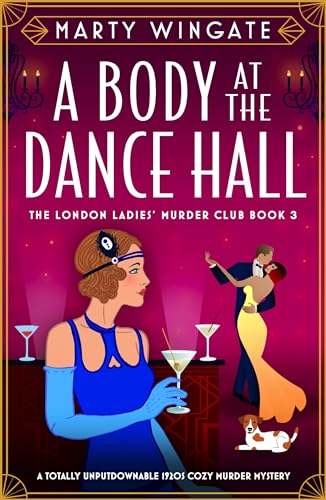 A Body at the Dance Hall (London Ladies' Murder Club #3) by
A Body at the Dance Hall (London Ladies' Murder Club #3) by  But trouble finds Mabel, as it has in her previous adventures,
But trouble finds Mabel, as it has in her previous adventures,  Escape Rating A-: I’ve already reached the point in Mabel’s adventures where I’m here specifically for her, and the particular case she’s working on is just extra. A compelling extra in the case of A Body at the Dance Hall, but still extra. I’m here to see how Mabel and her friends are doing, and to watch as she learns more about London, her assigned jobs for the Useful Women Agency, and the progress of her romance with her neighbor, Park Winstone. I’m especially here for the way that she keeps learning how to be a good investigator as well as an independent woman, a good worker and a good friend.
Escape Rating A-: I’ve already reached the point in Mabel’s adventures where I’m here specifically for her, and the particular case she’s working on is just extra. A compelling extra in the case of A Body at the Dance Hall, but still extra. I’m here to see how Mabel and her friends are doing, and to watch as she learns more about London, her assigned jobs for the Useful Women Agency, and the progress of her romance with her neighbor, Park Winstone. I’m especially here for the way that she keeps learning how to be a good investigator as well as an independent woman, a good worker and a good friend.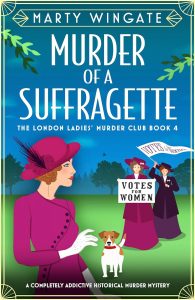 All of which means that in the middle of her assignment to show Roxanne the sights of London, Mabel also has a ringside seat on the behavior of Roxy, her father and stepmother, her mother when she arrives from America very much like the avatar of DOOM in T. Kingfisher’s
All of which means that in the middle of her assignment to show Roxanne the sights of London, Mabel also has a ringside seat on the behavior of Roxy, her father and stepmother, her mother when she arrives from America very much like the avatar of DOOM in T. Kingfisher’s 
 The Graveyard of the Hesperides (Flavia Albia Mystery, #4) by
The Graveyard of the Hesperides (Flavia Albia Mystery, #4) by  No matter how much technology advances, human nature remains pretty much the same, and that’s a big part of what makes historical mysteries so much fun AND so absorbing. That’s especially true in the
No matter how much technology advances, human nature remains pretty much the same, and that’s a big part of what makes historical mysteries so much fun AND so absorbing. That’s especially true in the 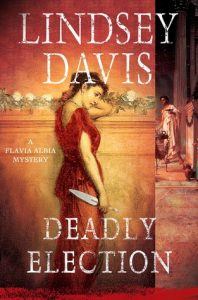 In other words, I came into this book with a whole lot of nostalgia and more than a bit of mystery reading background and baggage crowding my thoughts and falling out a bit willy-nilly all over the place. After all, it’s been nearly two years since I last visited Flavia Albia and her family in
In other words, I came into this book with a whole lot of nostalgia and more than a bit of mystery reading background and baggage crowding my thoughts and falling out a bit willy-nilly all over the place. After all, it’s been nearly two years since I last visited Flavia Albia and her family in  Even as she is in the midst of her own wedding and the hope of future happiness that it brings. If she can just manage to solve this case and get her in-laws out of her own and her formidable mother’s hair before someone’s face gets shoved into fist. Quite possibly her father’s.
Even as she is in the midst of her own wedding and the hope of future happiness that it brings. If she can just manage to solve this case and get her in-laws out of her own and her formidable mother’s hair before someone’s face gets shoved into fist. Quite possibly her father’s. The Mystery Writer by
The Mystery Writer by  Escape Rating B-: I picked this up because I LOVED the author’s previous book,
Escape Rating B-: I picked this up because I LOVED the author’s previous book, 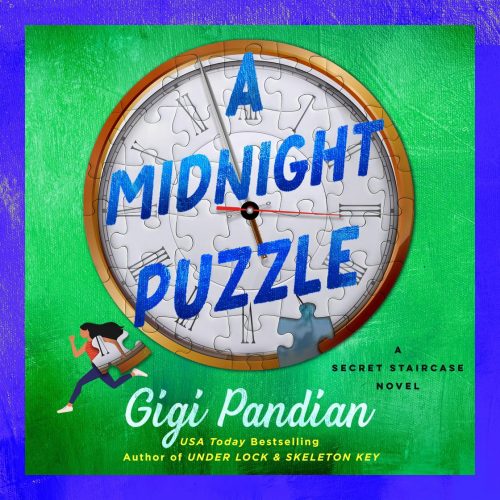 A Midnight Puzzle (Secret Staircase Mystery, #3) by
A Midnight Puzzle (Secret Staircase Mystery, #3) by 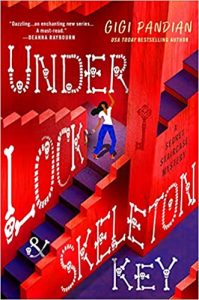 After her adventures – and misadventures – in the first two books in the
After her adventures – and misadventures – in the first two books in the  Escape Rating B: I have to admit that I went into this third entry in the series with a bit of trepidation after the muddle of
Escape Rating B: I have to admit that I went into this third entry in the series with a bit of trepidation after the muddle of 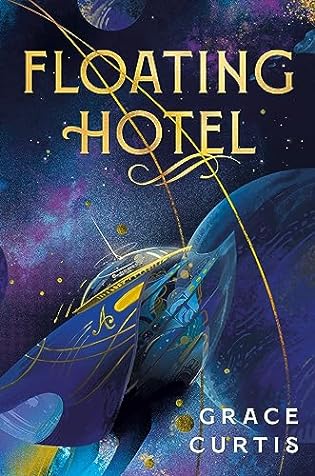 Floating Hotel by
Floating Hotel by  Murder at the Merton Library (Wrexford & Sloane, #7) by
Murder at the Merton Library (Wrexford & Sloane, #7) by  No matter how much, or how sincerely, they promised each other that they wanted a bit of peace and quiet with no murder investigations at the end of the previous book in the series,
No matter how much, or how sincerely, they promised each other that they wanted a bit of peace and quiet with no murder investigations at the end of the previous book in the series, 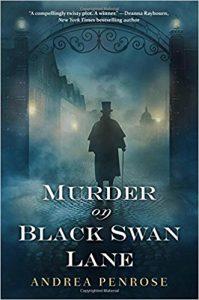 Escape Rating A-: I discovered this series last summer – another time when I was hunting for a good mystery series – and it has been an absolute delight every single time I’ve picked the series back up. But I held onto this entry because I’ve learned that no matter how great a series is – and this absolutely is – it just isn’t a good idea to read the series books too closely together no matter how much I’m tempted.
Escape Rating A-: I discovered this series last summer – another time when I was hunting for a good mystery series – and it has been an absolute delight every single time I’ve picked the series back up. But I held onto this entry because I’ve learned that no matter how great a series is – and this absolutely is – it just isn’t a good idea to read the series books too closely together no matter how much I’m tempted.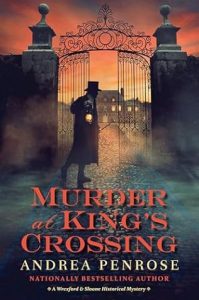 And on my third hand, one of the people caught up in this farrago clearly wasn’t onboard with all the deviltry involved, and could have had made much different choices, and we are confused by and feel for that character almost as much as Charlotte does.
And on my third hand, one of the people caught up in this farrago clearly wasn’t onboard with all the deviltry involved, and could have had made much different choices, and we are confused by and feel for that character almost as much as Charlotte does.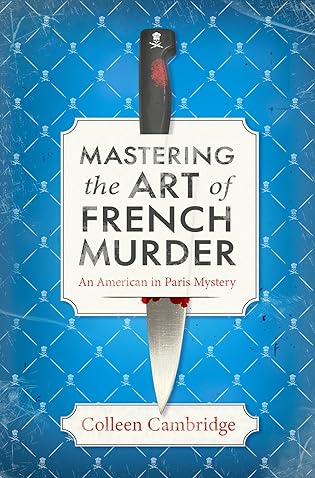 Mastering the Art of French Murder (An American In Paris, #1) by
Mastering the Art of French Murder (An American In Paris, #1) by  And then there’s Julia Child herself, much too boisterous to ever be considered merely a secondary character and certainly not a sidekick, who draws readers in with her true-to-life mannerism, her real, documented history working for the OSS in the war, and her larger-than-life presence on so many wonderful pages of this story.
And then there’s Julia Child herself, much too boisterous to ever be considered merely a secondary character and certainly not a sidekick, who draws readers in with her true-to-life mannerism, her real, documented history working for the OSS in the war, and her larger-than-life presence on so many wonderful pages of this story.